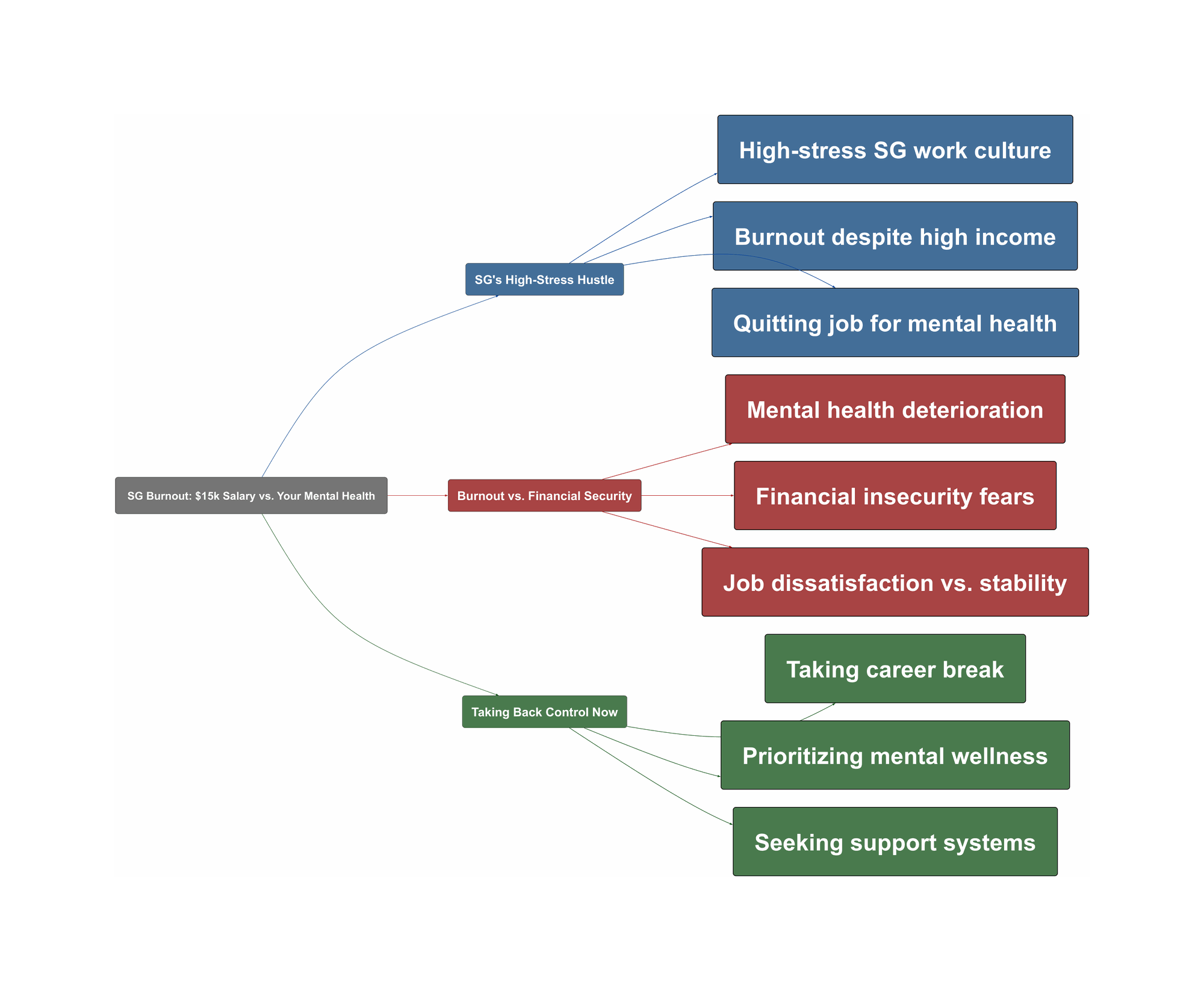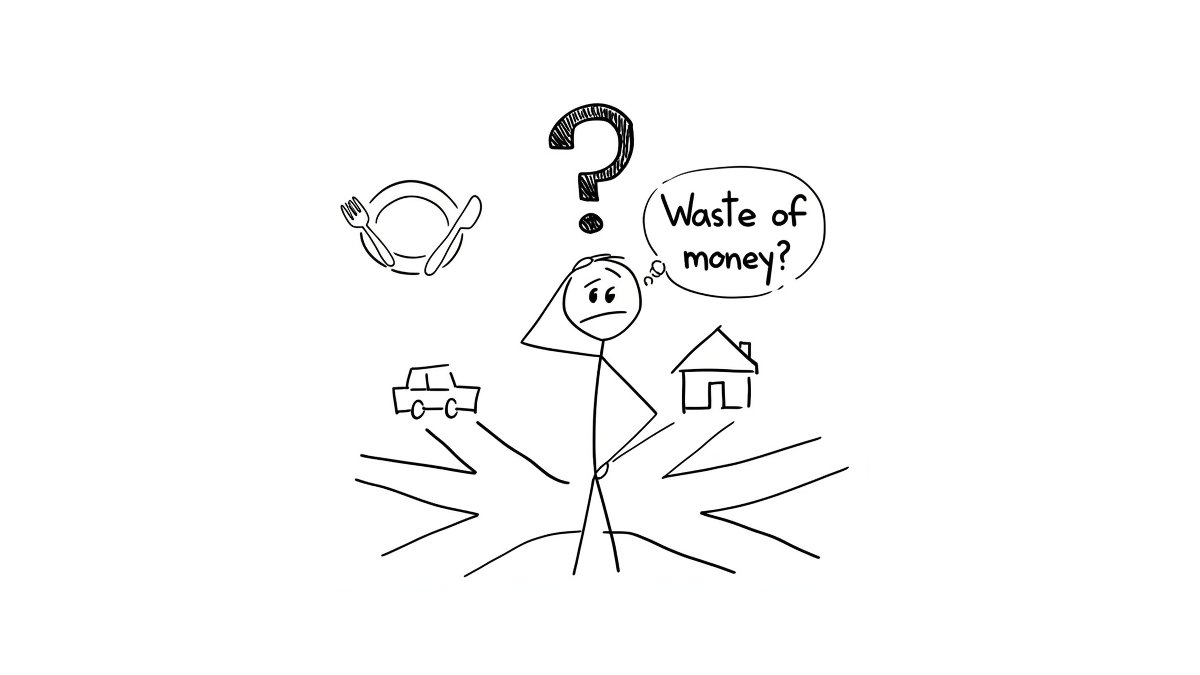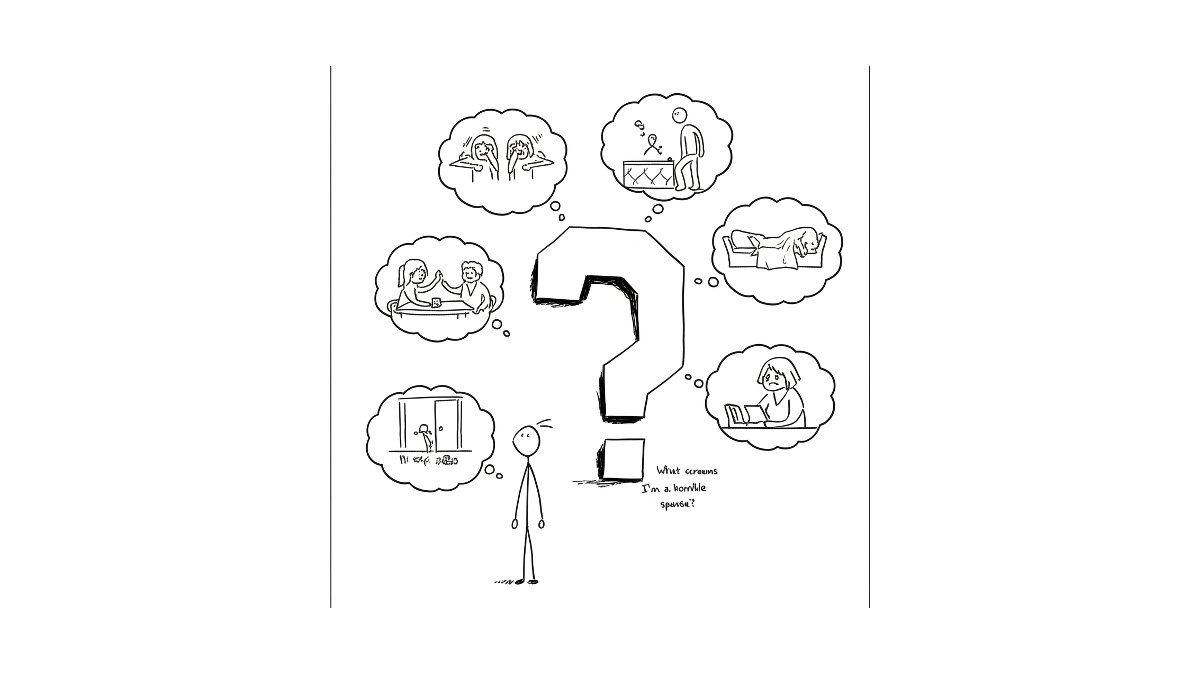Feeling ‘sian’ and utterly drained despite pulling in a good paycheck? Like you’re stuck on the MRT during peak hour, just trying to get through the day? You’re definitely not alone in Singapore’s high-pressure work environment. But what’s the real cost to your well-being?
SG’s High-Stress Hustle
Many Singaporeans find themselves in well-paying jobs that demand long hours and high performance. Saving aggressively for that BTO downpayment or comfortable retirement is the Singapore dream, but the pressure to climb the ladder is intense. We see stories online, like one Redditor earning $15k/month but feeling completely ‘done’. It’s a common scene: chasing financial security often comes at a steep mental cost. The daily grind, unbelievable bureaucracy, and constant stress can leave even high-achievers feeling empty and fatigued, despite a healthy bank balance.
- High income often equals high stress
“The unbelievable bureaucracy and high stress environment has got me feeling fatigued and just so ‘done’ all the time.”
- Pressure to save vs. mental toll
“You’re earning way more in 3 months than what average folks would earn in a year.”
- Many feel stuck in this cycle
Burnout vs. Financial Security
The big dilemma hits: your mental health is tanking, but can you really afford to step back? Quitting a high-paying job feels incredibly risky, especially with commitments, future plans, and maybe volatile investments adding to the stress. Some Redditors point out that even significant savings (like the OP’s $450k) might not feel like enough runway in uncertain times. This fear keeps many stuck. There’s also the worry that stepping off the fast track means losing momentum or relevance, a common fear in competitive Singapore. But the real danger? Complete burnout can take years to recover from, far longer than finding a new job.
- Fear of financial instability
“if you want to quit, have a little bit more runway. Especially when stocks are quite volatile it would drive you nuts…”
- Mental health cost is high
“money can be earned back, your mental health cannot.”
- Long-term impact of burnout
Taking Back Control Now
So, what can you actually *do*? Taking a break isn’t failure; it’s a strategic pause for your well-being. First, consider requesting unpaid leave – it doesn’t hurt to ask. If that’s not feasible, quitting might be the necessary step for genuine recovery. Use your savings as that planned buffer – even 6-12 months off can make a world of difference, as one commenter noted, “A stitch in time truly saves nine.” Focus on rest, rediscovering joy, maybe travel, or even trying part-time work to ease back in. Lean on your family and friends for support. Remember, your skills and capabilities don’t just vanish. Many who took the leap found happiness and eventually returned to fulfilling work, often stronger and with better perspective. Think of it as an investment in your future self – a healthier, happier you is ultimately more resilient.
- Explore unpaid leave options
- Plan a calculated break
“It’s fine. Take time for yourself! Live a little. You can always work a little and come back to the grind.”
- Prioritize rest and recovery
“I still think I made the right decision to leave the job and recover… I am much much happier and more contented now.”
- Consider part-time work
“Is okay to take on part time work while you are re-discovering yourself too”




